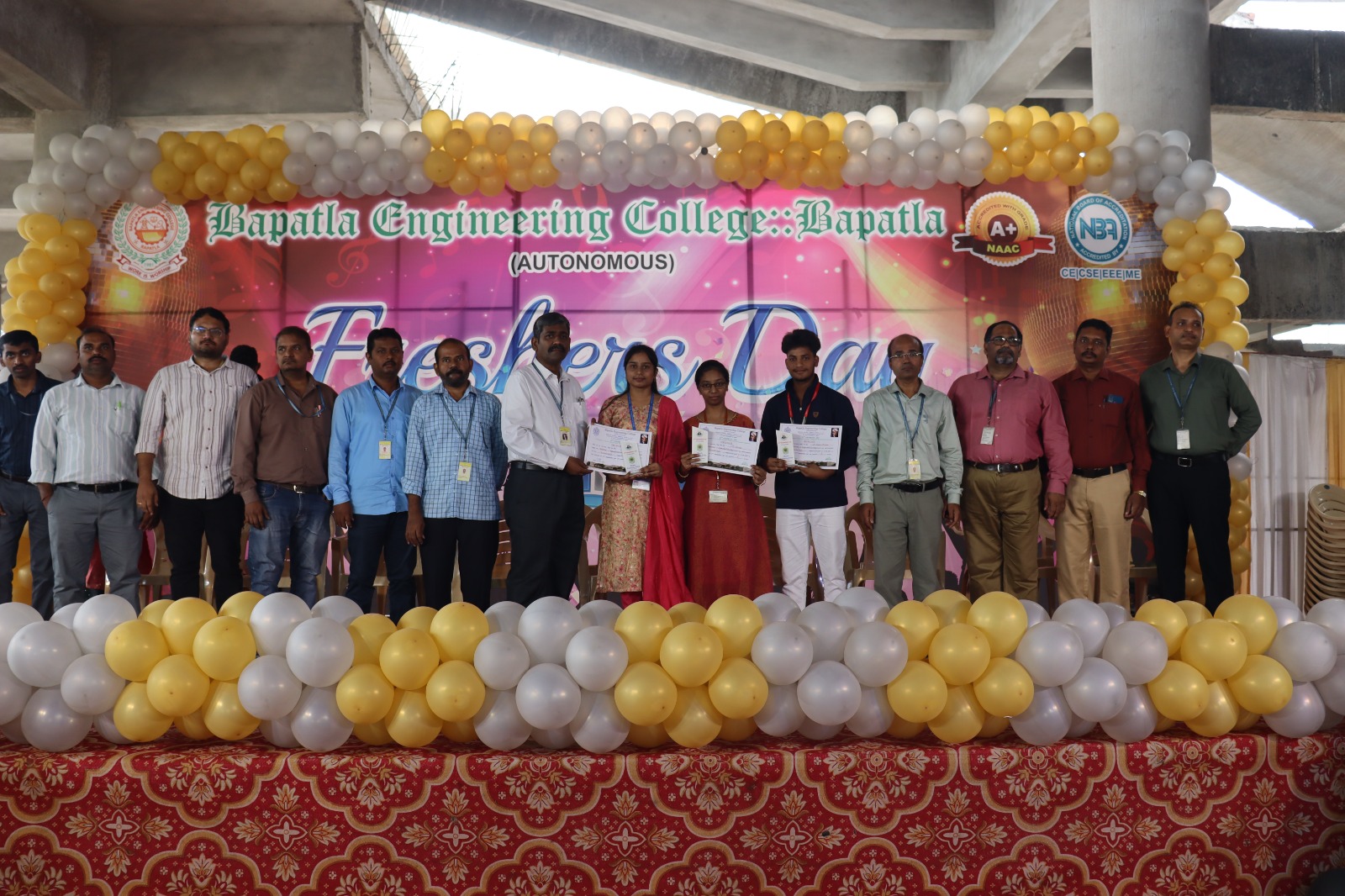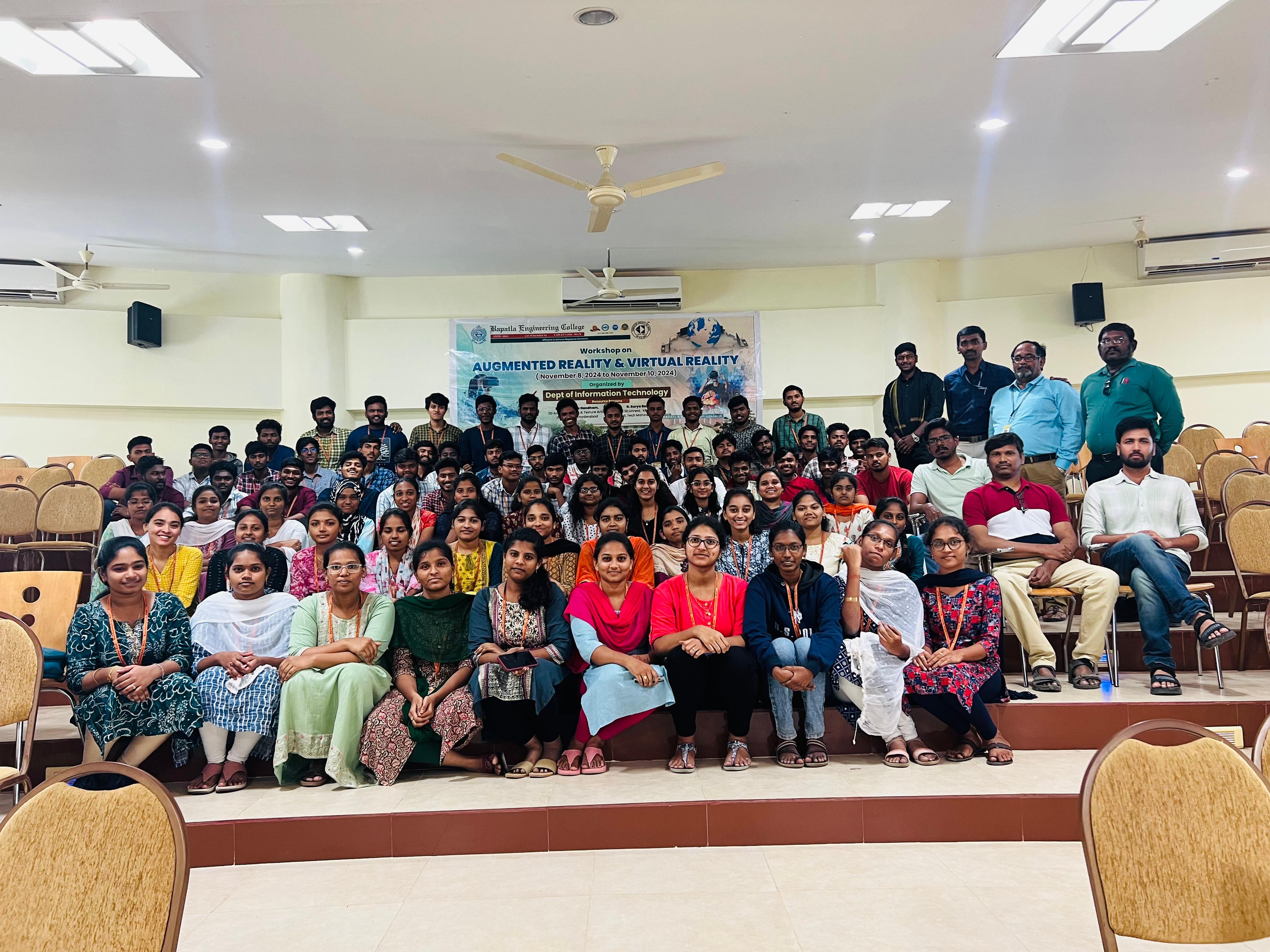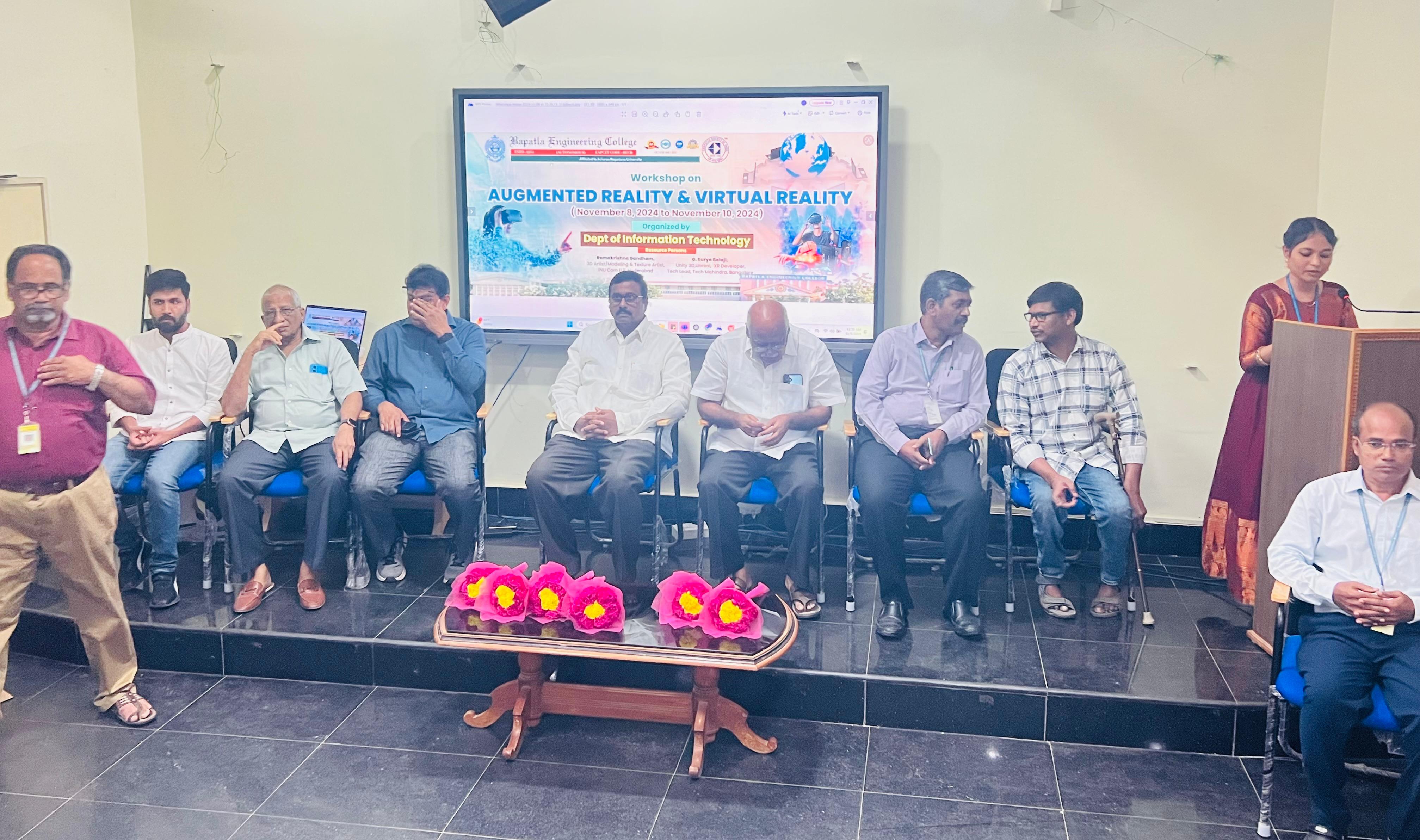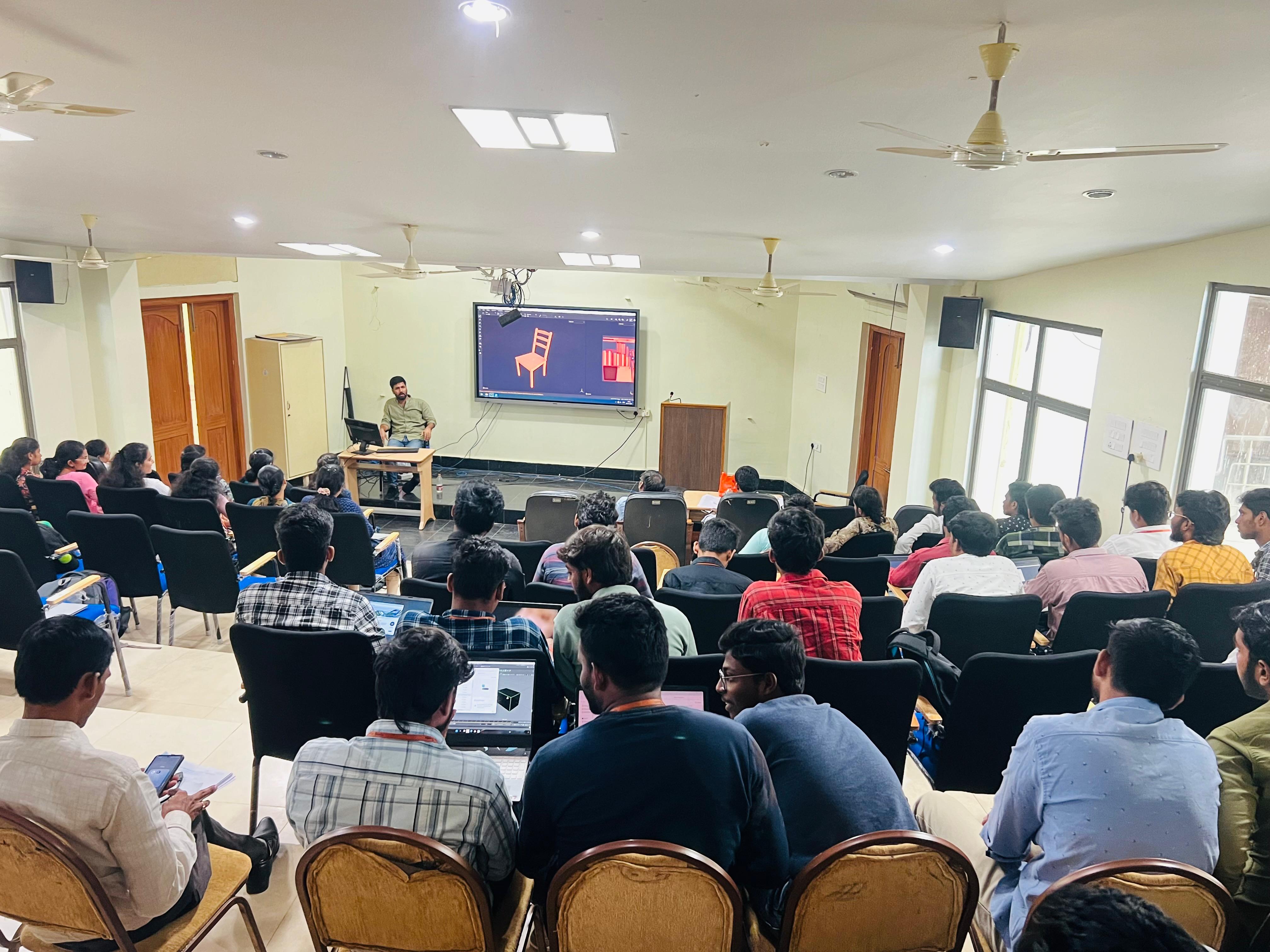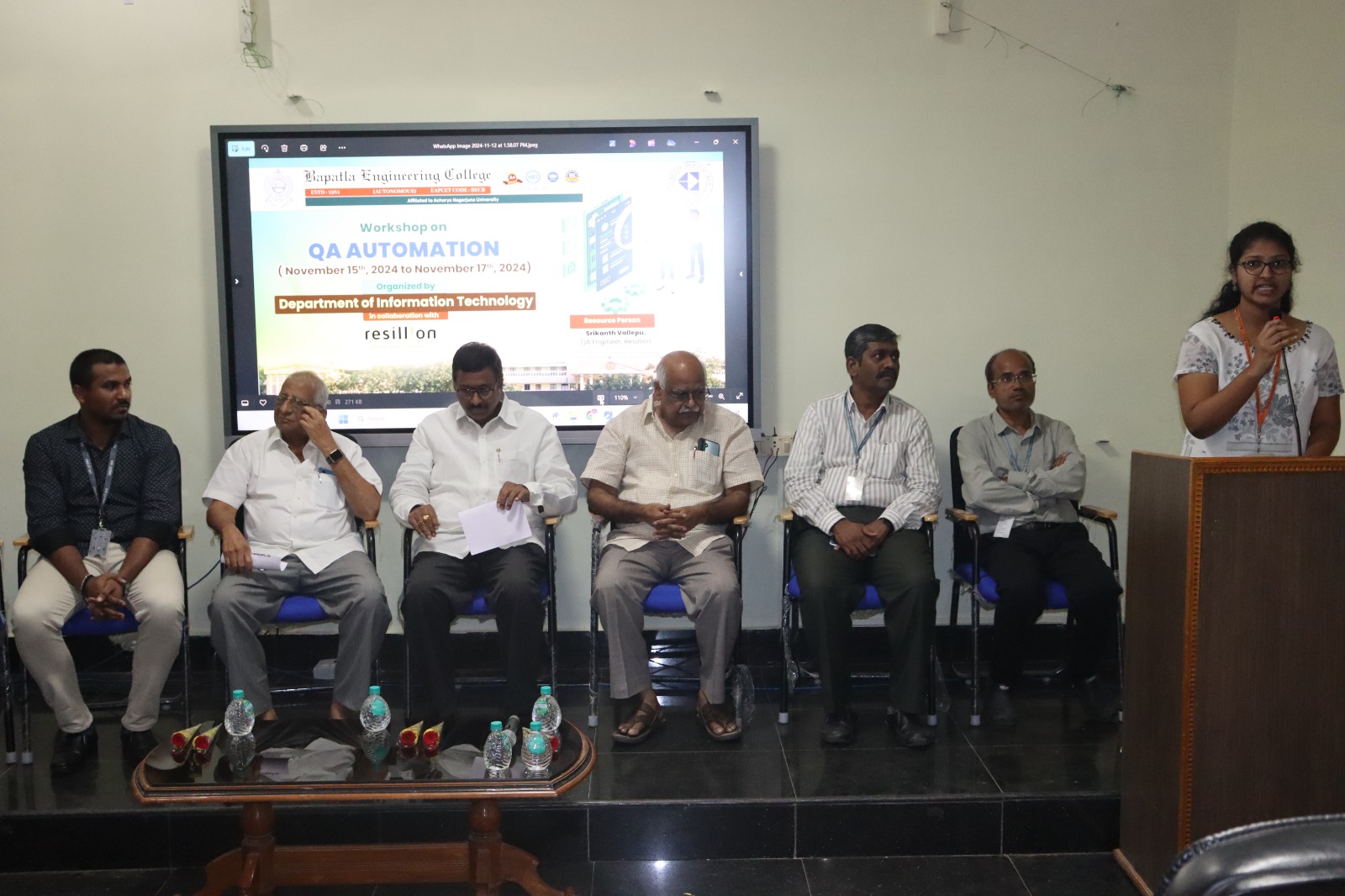- About the Department
- Vision
- Mission
- Objectives
- Outcomes
The Department of IT was started in the academic year 1999-2000 and accrediated by NBA twice (in the year 2007 for 3 years and in the year 2024 for 3 years). The department offers B.Tech in Information Technology with an annual intake of 180. The department is equipped with the state of the art computing facilities and experienced faculty members. It is known for its academic excellence proved by its performances since its inception.
The Average Pass Percentage of the department has been 81.3% and 34.1% of the students obtain distinction every year, which speaks of the academic fervour in the department.
A good number of students from the department obtained admissions into M.S.(Computer Science) Program abroad. Many of the students were placed in reputed organizations like TCS, CapGemini, Infosys, CTS, IBM, iGate, Virtusa, MindTree, Accenture & Tech Mahindra etc..
Students are encouraged to participate in extra-curricular activities and competitions held by other universities and colleges within the state and out-side the state. The department strives hard to impart quality education and to keep the students on the competitive edge of the present-day technology.
Programmes Offered by the Department:| Course | Sanctioned Intake |
|---|---|
| UG-B.Tech (IT) | 180 |
Vision:
Our vision is to empower our students with the skills and knowledge necessary to meet the challenges of the 21st century, driving sustainable socio-economic development through innovative solutions and responsible use of technology.
Mission:
M1: Catering to the needs of students by providing good infrastructure and by imparting skills relevant to the IT industry.
M2: To motivate students and faculty members towards self-learning to acquire knowledge about emerging technologies in the IT industry.
M3: Promoting research that leads to innovative solutions using cutting-edge technologies in IT domain for the benefit of the society.
M4: To inculcate team spirit, leadership qualities and ethics among the students and faculty.
Program Educational Objectives:
PEO1: Successful and ethical professionals in IT and ITES(Information Technology Enabled Services) industries contributing to societal progress.
PEO2: Engage in life-long learning, adapting to changing technological scenarios.
PEO3: Communicate and work effectively in diverse teams and exhibit leadership qualities.
Information Technology graduates will be able to:
- PSO1. Domain knowledge:
- Acquire knowledge of hardware functionality, design and development of software components required to process the information.
- PSO2. Problem solving skills:
- Analyze data, Identify required data structures, design suitable algorithms, develop, operate and maintain software for real world problems.
- PSO3. Paradigm shifts:
- Understand the progressive changes in computing, possess knowledge of context aware applicability of paradigms.
Program Outcomes:
Engineering Graduates will be able to:
1. Engineering knowledge: Apply the knowledge of mathematics, science, engineering fundamentals, and an engineering specialization to the solution of complex engineering problems.
2. Problem analysis: Identify, formulate, review research literature, and analyze complex engineering problems reaching substantiated conclusions using first principles of mathematics, natural sciences, and engineering sciences.
3. Design/development of solutions: Design solutions for complex engineering problems and design system components or processes that meet the specified needs with appropriate consideration for the public health and safety, and the cultural, societal, and environmental considerations.
4. Conduct investigations of complex problems: Use research-based knowledge and research methods including design of experiments, analysis and interpretation of data, and synthesis of the information to provide valid conclusions.
5. Modern tool usage: Create, select, and apply appropriate techniques, resources, and modern engineering and IT tools including prediction and modeling to complex engineering activities with an understanding of the limitations.
6. The engineer and society: Apply reasoning informed by the contextual knowledge to assess societal, health, safety, legal and cultural issues and the consequent responsibilities relevant to the professional engineering practice.
7. Environment and sustainability: Understand the impact of the professional engineering solutions in societal and environmental contexts, and demonstrate the knowledge of, and need for sustainable development.
8. Ethics: Apply ethical principles and commit to professional ethics and responsibilities and norms of the engineering practice.
9. Individual and team work: Function effectively as an individual, and as a member or leader in diverse teams, and in multidisciplinary settings.
10. Communication: Communicate effectively on complex engineering activities with the engineering community and with society at large, such as, being able to comprehend and write effective reports and design documentation, make effective presentations, and give and receive clear instructions.
11. Project management and finance: Demonstrate knowledge and understanding of the engineering and management principles and apply these to one’s own work, as a member and leader in a team, to manage projects and in multidisciplinary environments.
12. Life-long learning: Recognize the need for, and have the preparation and ability to engage in independent and life-long learning in the broadest context of technological change.


